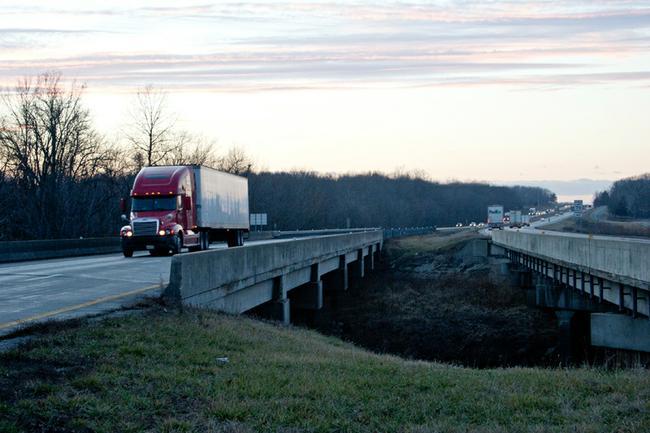
Motorists using I-70 might soon face higher travel costs if the Missouri Department of Transportation is able to move forward with proposed changes to the interstate through Missouri, said Bob Brendel, Special Assignments Coordinator for MoDOT.
The plan would add up to two lanes in each direction on the I-70. Beginning near Wentzville, the highway would be widened, including interchange upgrades through the heart of Missouri to Highway 470 by Kansas City.
The planned expansion, Brendel estimates, will create up to 12,000 jobs in Missouri during six to eight years. The cost of the project could run up to $4 billion, and motorists should expect around $25 in fees to travel the length of the state, with semi trucks costing $50 to $75 in fees, according to Brendel.
He said this investment is the reason private companies funding the work would install toll stations to recuperate costs.
Legislation has not been introduced yet. Brendel said though Missouri voters have twice rejected the idea of tolls, this method does not require a public vote.
“The interstate needs improvement,” Brendel said. “Authorization to enter into a public-private partnership does not require a public vote.”
Additionally, he mentioned the previous rejections of tolls in Missouri were generalizations and not aimed at a specific project, unlike the current proposal that has already received federal approval.
“Because I-70 has the environmental clearances it needs for work to begin and the federal approvals to be reconstructed as a new tolled highway, it is the only road in the state that could be tolled,” Brendel said.
The Missouri Trucking Association takes a starkly different stance. Missouri Trucking Association President Tom Crawford considers the tolls to be a forced tax on consumers.
“The idea of tolls on existing highways is inefficient, and we oppose it,” Crawford said. “The state could increase the general sales tax or add additional fuel taxes. Either of those two taxes have a much lower cost to collect, essentially a 2 to 4 percent administrative cost, as compared to up to 25 percent administrative cost from a toll.”
Crawford also pointed out the potential voter backlash could be worrisome. He contends that voters could be frustrated with the method in which the tolls would be imposed. This could amount to any further bills brought forth for needed improvements in other parts of the state being rejected.
State Senator Bill Stouffer, R-Jefferson City, expressed similar concerns. He is open to all discussions involving rebuilding the interstate and underscores the need for improvements.
He said the interstate is only designed for 20,000 vehicles a day at any given point, but averages 70,000.
Junior Sarah Hollins expressed outrage as a consumer at the idea of a forced toll. She travels from Columbia to Kansas City every weekend for work, and is concerned about the additional travel expense.
“With a toll that high, I will have to reconsider my job in Kansas City,” she said.
Stouffler said 36 percent of all Missouri jobs are within 30 miles of I-70 and I-44, so the proposed legislation will affect a large portion of working citizens, regardless of whether the bill passes.